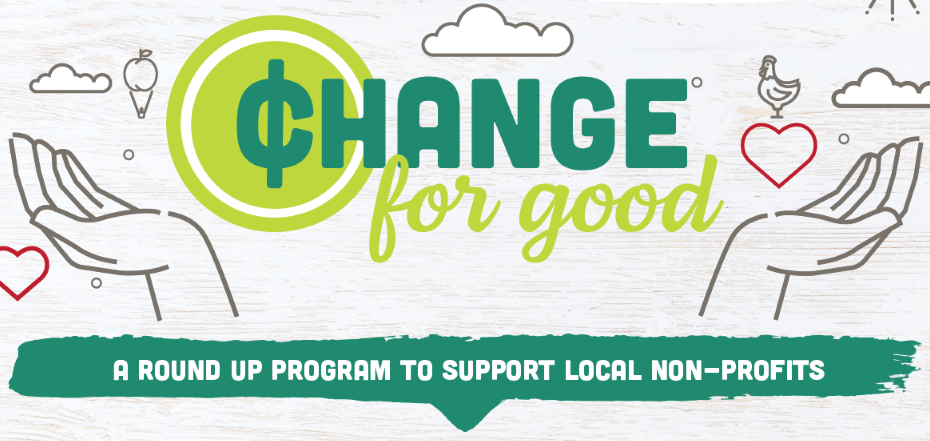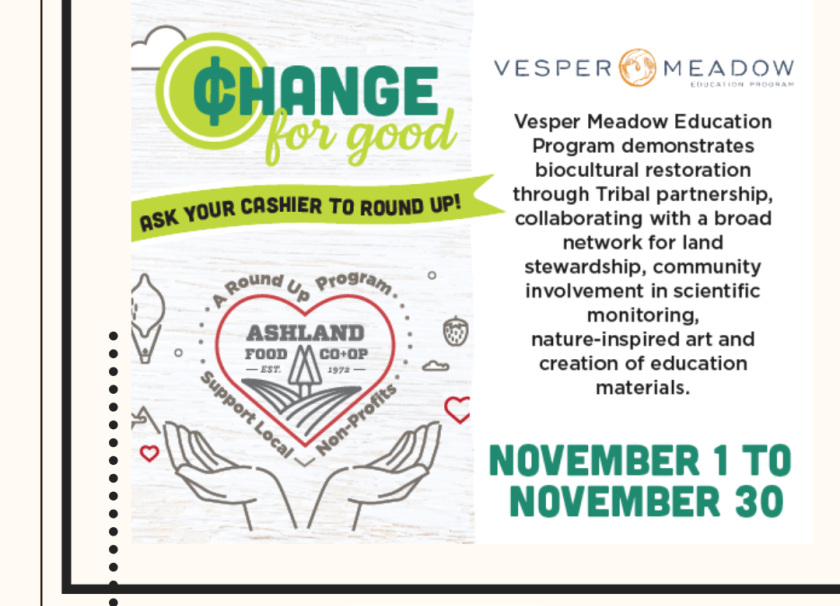
November Change for Good Partner: Vesper Meadow Education Program
November's Change for Good Partner is
Vesper Meadow Education Program
.png)
The Vesper Meadow Education Program is building a culture of land stewardship and nature connection. They demonstrate biocultural restoration through Tribal partnership, collaborating with a broad network for land stewardship, community involvement in scientific monitoring, and sharing our work through nature-inspired art and creation of education materials.
Funds raised from November will help support their work with the Southwest Oregon Indigenous Gardens Network.
The Indigenous Gardens Network (IGN) serves as a hub of collaborative, Indigenous-led land projects that aim to restore traditional gathering areas throughout Southwestern Oregon (SWO) so that First Foods and plants of cultural significance can be cultivated, harvested, and made accessible to Indigenous partners. The IGN mobilizes new and existing resources in innovative ways to create project-based and experiential learning opportunities that address the urgent issues of food security, climate change, and Indigenous food sovereignty. The project represents a regional partnership that brings diverse partners together (Tribes, educators, conservation organizations) to address barriers to First Food access and cultivation.
Read the IGN Press Release, December 2020
The IGN is a partnership between the Confederated Tribes of Siletz Indians of Oregon, Confederated Tribes of Grand Ronde, Southern Oregon University (SOU), Vesper Meadow Education Program, and other regional partners that received funding from the Oregon Cultural Trust to initiate the Indigenous Gardens Network.
Since 2019, Vesper Meadows has worked with the Native Studies Department at SOU to envision and support the development of the IGN. In the winter and spring of 2020/2021, they engaged in six listening sessions with Grand Ronde and Siletz Tribal members to collectively develop the vision and structure of this Indigienous-led network.
During the summer of 2021, Vesper Meadow served as a pilot site for the IGN, providing Indigenous partners with unique opportunities that are often hard to come by in Southwest Oregon:
- ease of land access to the 950-acre Preserve
- opportunities to create, lead and enact native plant restoration plans
- safe spaces for culturally significant activities
Vesper Meadows continues to provide fundraising and logistical support for the IGN and for trips to SWO by IGN partners living elsewhere. The Vesper Meadow Restoration Preserve serves as a primary location
Vesper Meadow’s primary outpost is the Vesper Meadow Restoration Preserve, a 1,000 acre mix of upland wet meadows, conifer forests, and open shrub-steppe hillslopes in the heart of the Cascade-Siskiyou region. The Vesper Meadow Restoration Preserve is recovering from over a century of heavy forest and meadow use, and now serves as a biocultural restoration demonstration site for the Vesper Meadow Education Program. All restoration efforts are made with the intention to restore and enhance:
- the natural hydrology of Latgawa Creek
- the native plant community, and biodiversity reflective of the greater Cascade-Siskiyou region
- Indigenous connections through Tribal partnership and self-determined goals for First Food land management
- imperiled wildlife habitat for Mardon Skipper, Vesper Sparrow, and other rare species detected through ongoing monitoring efforts
- the ecological integrity of the creek, meadow, and forest-slope habitat for climate resiliency
- creating enhanced opportunities for human relationship with the land
To learn more about this local nonprofit, the work they are doing in our community and get involved in upcoming restoration projects, please visit vespermeadow.org
Vesper Meadow Education Program was chosen by our owners in our 2022 election to be a Change for Good Partner. Through the cumulative register round up donations over the course of this month ~ our shoppers will help support this local nonprofit organization and the work that they are doing in our community.
2020 was the first year of Change for Good, a register round-up program to benefit a slate of ten organizations, voted on by Co-op owners, through the cumulative donations of shoppers choosing to round-up their shopping total to the nearest dollar.
From one cent to 99 cents, it all adds up to feeling good about supporting the community.
More Co-op News

Rogue Co-ops College Scholarship
As part of the Rogue Co-ops, a group of Rogue Valley cooperative businesses that includes Ashland Food Co-op, Grange Co-op, Medford Food Co-op, and Rogue Credit Union, we're excited to offer a scholarship opportunity to local high school students planning on attending college.
The Rogue Co-ops have collectively funded a $2,000 scholarship (and Grange Co-op offers an additional eight $1,500 scholarships) for students (in public, private or home school settings) who meet the following requirements:

Become an Owner-Volunteer with the AFC Board
The AFC Board of Directors is looking for owner-volunteers for three board committees: the Owner Engagement Committee (OEC), Board Development Committee (BDC), and AFC Gives Committee.
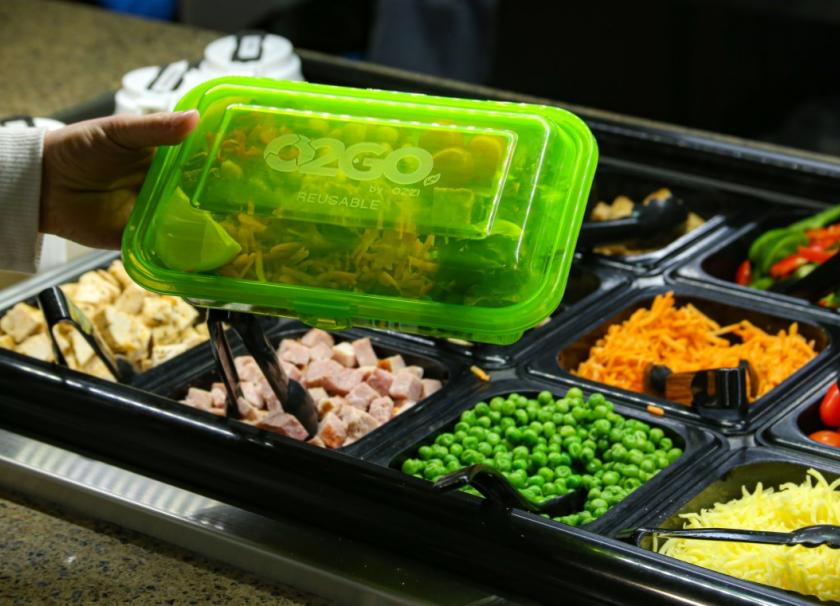
Sustainability Update: Building on a Strong Foundation
Sustainability Update
Our team has been working on many different projects throughout the year, taking great steps to fulfill our four sustainability goals. Our four goals to achieve by 2030 are: carbon neutrality, zero waste, eliminating toxic chemicals, and being a leader in our sustainable community. We look forward to our sustainable success in the upcoming decade!

2020: A vision for the future through Co-ops and local food
As the 2010s come to a close, the “20/20” eyesight analogy couldn’t be more appropriate for the new decade. With our eye on the future, there’s clearly a sense of urgency and awareness of the unique times we’re living in: a changing climate, increases in costs of living, and the shared pressures of a globalized world.
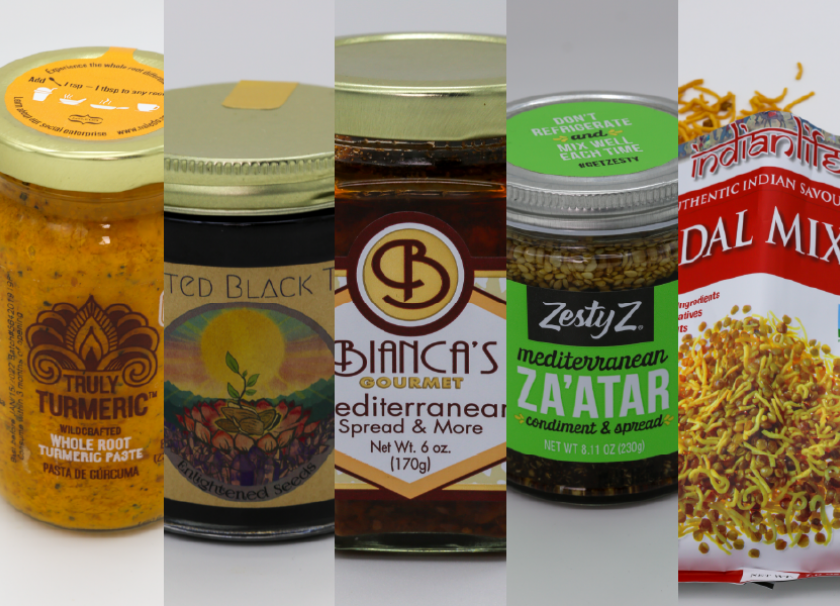
5 Items to Try: Spreads, Condiments & Snacks
It's fun trying new things! Here are five items you can find at the Co-op with a distinctly international flavor. Whether you're spreading them on some bread or naan, mixing up a salad dressing, or just want something salty and crunchy to snack on, try these out next time you want to elevate your dishes.
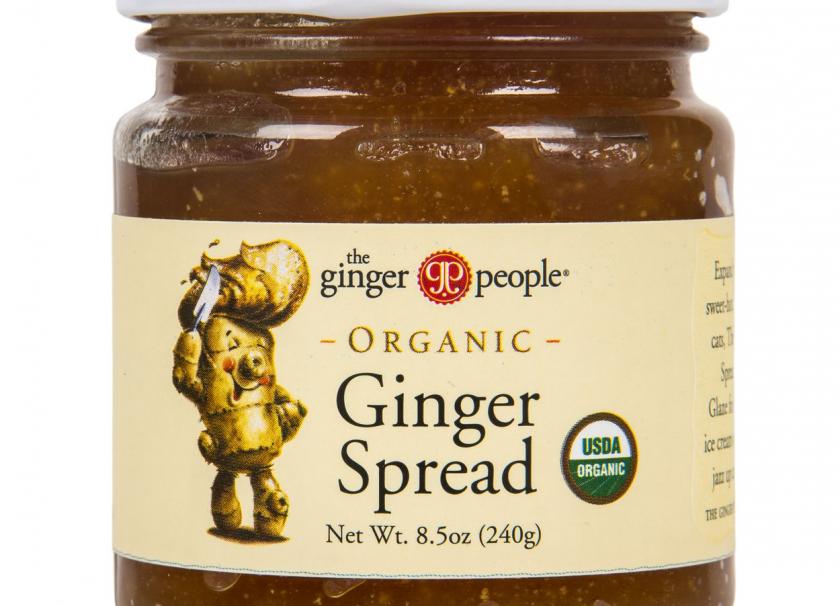
10 Ways to Enjoy: Ginger Spread
Sometimes you might come across a product at the Co-op and ask, "That looks good, but how in the heck can I use it in my cooking?" To answer that question, we picked this Ginger Spread made by The Ginger People (famous for their Gin-Gin candies). Grab a jar and try some of these unique applications in your own kitchen - or get inspired to utilize it in another way.
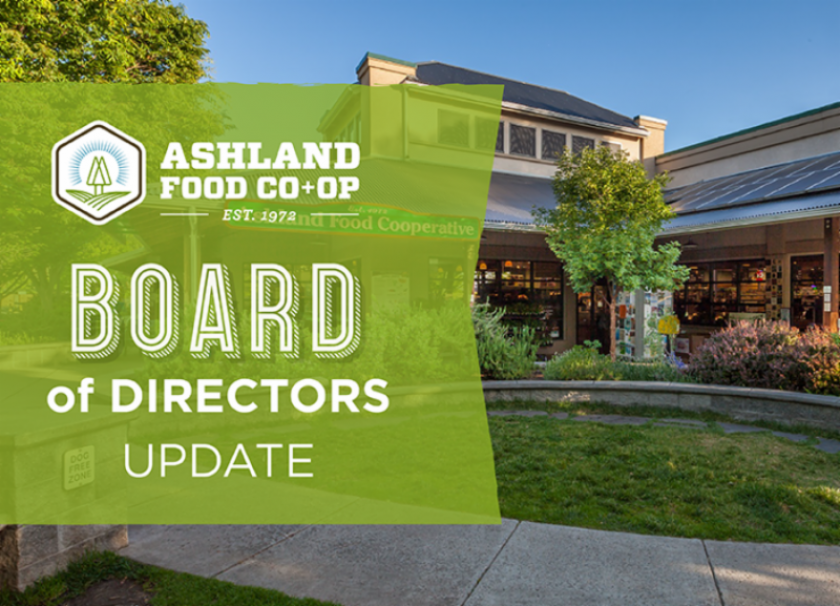
Meet Your Board: Melina Barker
Hello, Co-op members! My name is Melina Barker, and I joined the AFC Board of Directors this July. Since then, I have been busy learning about all the work the previous members have done to craft strategic goals to support the success of the AFC.
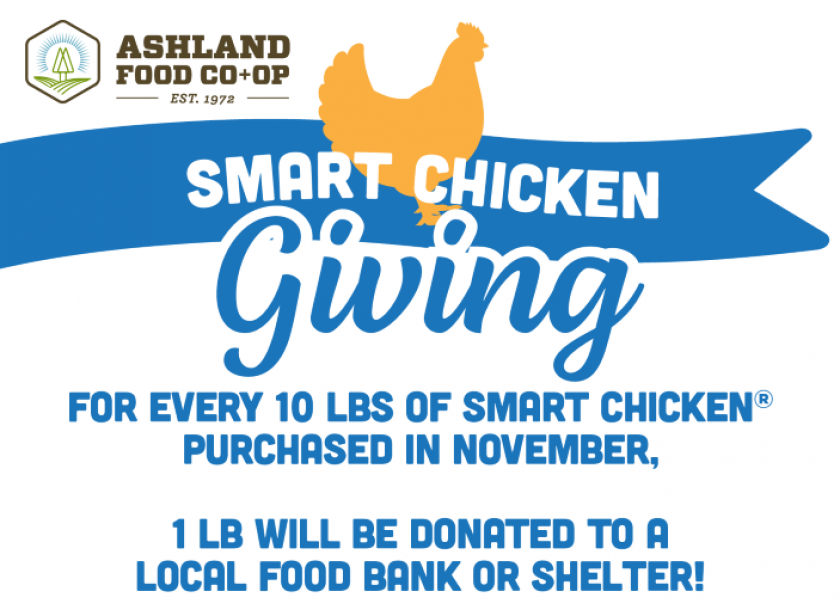
Smart Chicken® Holiday Giving in 2019
During the month of November, Co-op shoppers can nourish their own families and help fight hunger in the Rogue Valley.
Over the years, Smart Chicken® and Ashland Food Co-op have teamed up to donate thousands of pounds of chicken to ACCESS. Smart Chicken® will once again donate Smart Chicken® products based on the total volume that shoppers purchase at Ashland Food Co-op to ACCESS.
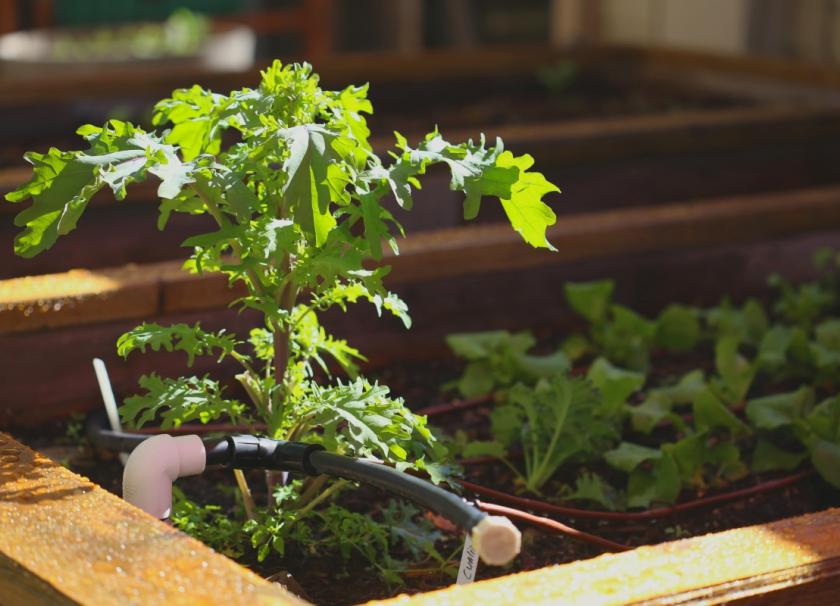
Henry in the Garden: Already Preparing for the Spring
The bane of all gardeners is powdery mildew - that white substance that collects both on the tops and bottoms of the leaves of your healthiest vegetable plants. Cucumbers and zucchini seem to be more easily affected by this scourge than many others.

GM Report: Gratitude for a Great 2019 at the Co-op
It’s the season of gratitude and reflection on the year that has passed, and there is so much to be thankful for as a Co-op owner.
2019 started off with the news that over $13,000 in emergency donations had been raised from Co-op owners and shoppers for support and relief efforts after Paradise, CA was leveled by a wildfire. This outpouring of our support was critical in the months after the fire, after the news trucks had left and the work of rebuilding began. I know how grateful we all are for the much calmer smoke season that our region experienced this summer.
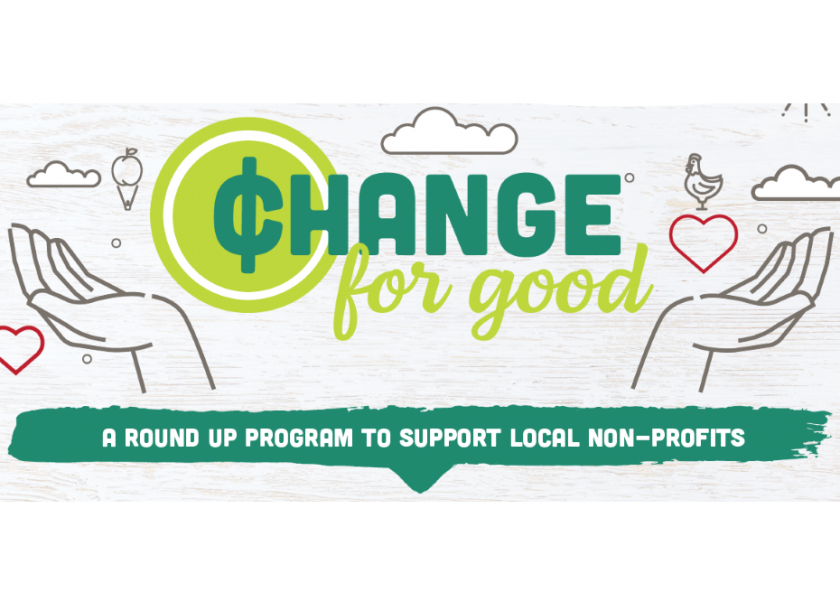
Rounding Up in October
Part of what makes co-ops unique are the guiding 7 Principles of Cooperation. One of the seven that is felt strongly in Ashland is "Concern for the community" - and that's why the Co-op is offering a new way to give back to our community for the month of October. When you pay at the register, you can round up your total to the nearest dollar. For example, $11.68 becomes $12, and $0.32 is donated.

Win 2 tickets to "Chicken Done Simply" cooking class
Find out how fun and educational Co-op cooking classes are! Sign up below for the chance to win two free seats (for you and a friend or loved one) at the next class, "Chicken Done Simply" with the Co-op's own Michelle Guerrie.
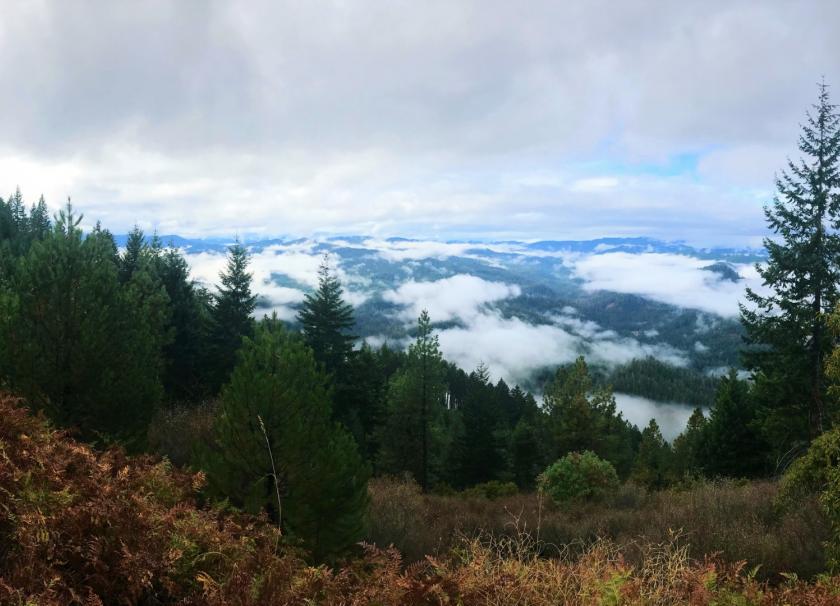
Fall Staff Picks
Thanks to alpine trails and shaded valley creeks, outdoor recreation is year-round in the Rogue Valley. But fall usually makes for more frisky feet, so we asked Co-op employees for their favorite fall activities and recommendations for what they grab before they head out.

Applegate products joining Co-op Basics
Just in time for the school year, Applegate products are being added to the Co-op Basics program! The Co-op carries a variety of Applegate products, like sliced deli meat, cheeses, bacon, and sausages. Now as part of the Co-op Basics program, you’ll be saving up to $2 on Applegate products across the store, every day.

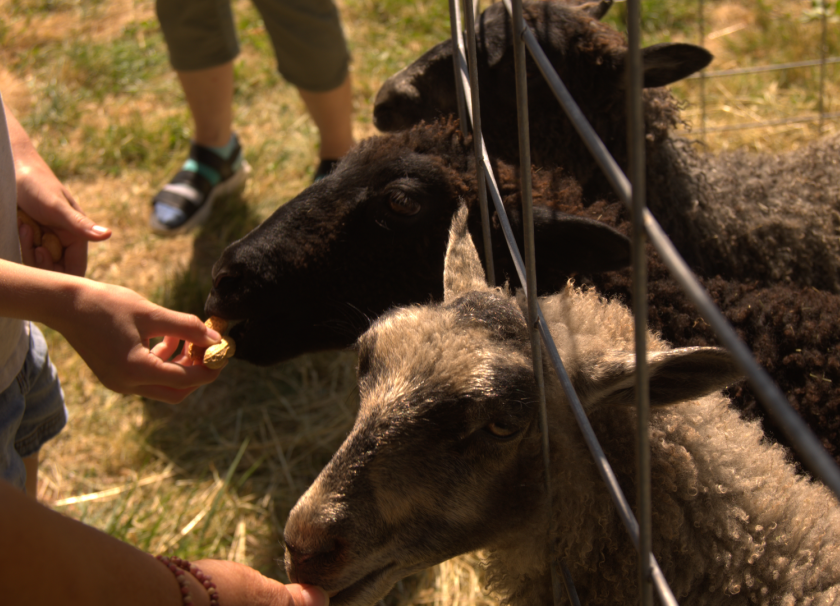
2019 Farm Tour Recap
Another successful farm tour is in the books! With 30 farms this year, visitors could see how bigger farms work, like Herb Pharm, Fry Family Farm, and Rogue Creamery, while also experiencing the joys of smaller farms, such as Turning Point Farm, Fox Run Farm, and Daily Blessing Farm.
Visitors of all ages enjoying Goodwin Creek Gardens

